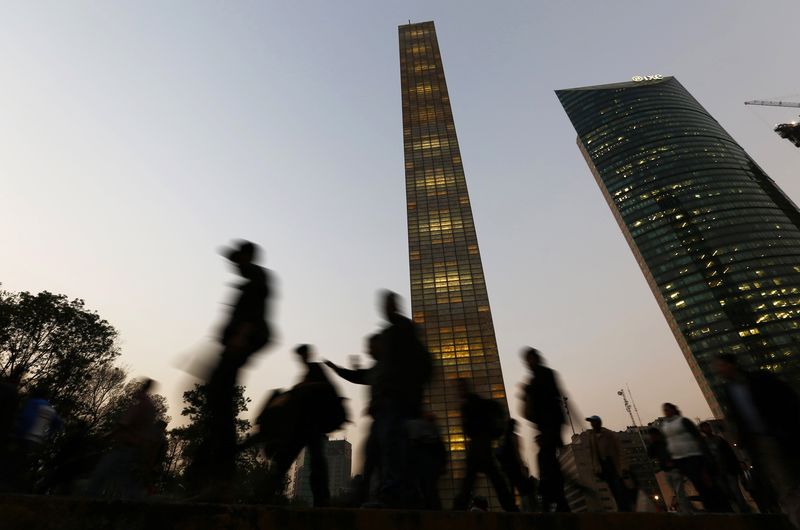MEXICO CITY (Reuters) - Mexico's consumer confidence index fell to its lowest level on record in January, the government said on Friday, amid accelerating inflation and an uncertain economic outlook after Donald Trump became president of the United States.
When adjusted for seasonal factors, Mexican consumer confidence <MXCONF=ECI> slid 15.1 percentage points to 69.3 in January, the same month Trump took office threatening to scrap the North American Free Trade Agreement, build a Mexican-funded southern U.S. border wall and deport million of undocumented immigrants.
The January figure is the lowest the national statistics agency has recorded in the data series which began in 2001.
Trump's victory has sent shock waves through Mexico, threatening to upend years of cooperation between the neighboring countries.
U.S. threats to rip up a free trade deal with Mexico cast a chill over company investment plans, while worries of slower growth and inflation could hit private spending.
Following Trump's Nov. 8 win, the peso fell to a series of record lows, fanning inflation and helping drive President Enrique Pena Nieto's popularity to fresh lows.
Mexico's annual inflation shot up in early January to 4.78 pct, its fastest pace in over four years, stoked by a government-led increase in gasoline prices.
Consumer prices are seen rising to over 5.2 percent this year, according to a central bank poll published this week, a move well above policymakers' upper limit of 4 percent that will likely fuel further interest rate hikes.
"The fall in consumer confidence is directly related with Donald Trump taking office, and his threats toward Mexico, but it's also affected by inflationary pressures," Gabriela Siller, of Banco BASE, said in an investor note.
In unadjusted terms, the consumer confidence index <MXCONC=ECI> fell to 68.5 during the month from a prior reading of 85.7.
